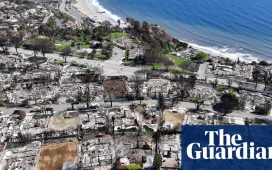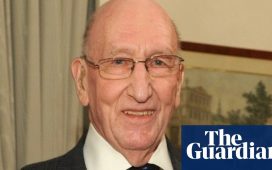Unlock the Editor’s Digest for free
Roula Khalaf, Editor of the FT, selects her favourite stories in this weekly newsletter.
Lloyd’s of London does not plan to offer direct financial compensation for its role in the slave trade, according to people familiar with the matter, rebuffing growing calls for UK institutions to pay reparations to victims’ descendants.
The insurance marketplace, like the Church of England, is among the UK institutions under most pressure to account for historic links to slavery.
Lloyd’s, which dates back to a 17th-century London coffee shop, apologised three years ago for its role in the trade, whereby insurance offered in the market underpinned the trade of enslaved people, who were underwritten as part of a ship’s cargo.
In partnership with Johns Hopkins University in Maryland, Lloyd’s is conducting research into the role of insurance in the transatlantic slave trade, through which millions of Africans were forcibly transported to the Americas, many dying in the passage.
It is expected to issue a report next month that will address its role in the trade and explain how it is funding diversity initiatives. But it is not planning to offer direct financial compensation to descendants, according to three people familiar with its position.
That will disappoint campaigners who have called on Lloyd’s to pledge direct compensation to descendants of those enslaved.
While activists have long sought reparations for the descendants of slaves, in recent years they have increasingly targeted individual companies or institutions rather than society as a whole.
The Church of England, which received funds linked to enslavement estimated at £1bn in today’s money, has set aside £100mn to address its “shameful past”.
The Bank of England, Lloyds Banking Group, RBS and law firms Freshfields and Farrer are among other institutions to have issued apologies, with some pledging to fund diversity initiatives. But their moves have fallen short of offering direct compensation to victims’ descendants.
The insurance industry is seen as having enabled slavery given its importance to global shipping. In one episode, the 1781 Zong Massacre, more than 130 Africans were thrown overboard as supplies ran low and the captain spotted an opportunity to claim on insurance.
The corporation overseeing Lloyd’s has previously held internal discussions over the question of paying direct compensation, according to people familiar with the matter, who said a sticking point was the problem of identifying who would be paid.
Lloyd’s declined to comment, but has previously described its participation as “part of our shared history that caused enormous suffering and continues to have a negative impact on Black and ethnically diverse communities today”.
Any attempt to tap the insurance and brokers of the market for contributions would be unpopular, executives say privately. They argue that their firms did not exist until after abolition and that the benefit was restricted to those individuals who participated in the market at the time.
Caribbean nations are pursuing Lloyd’s and others for reparative payments, the Telegraph reported last month.
In an open letter in response to the marketplace’s 2020 apology, US rapper Clifford Harris, who performs as TI, dismissed Lloyd’s pledges to invest in diversity programmes as “far too vague” and demanded that “direct reparations be made to the families who were ripped from their native lands”.











